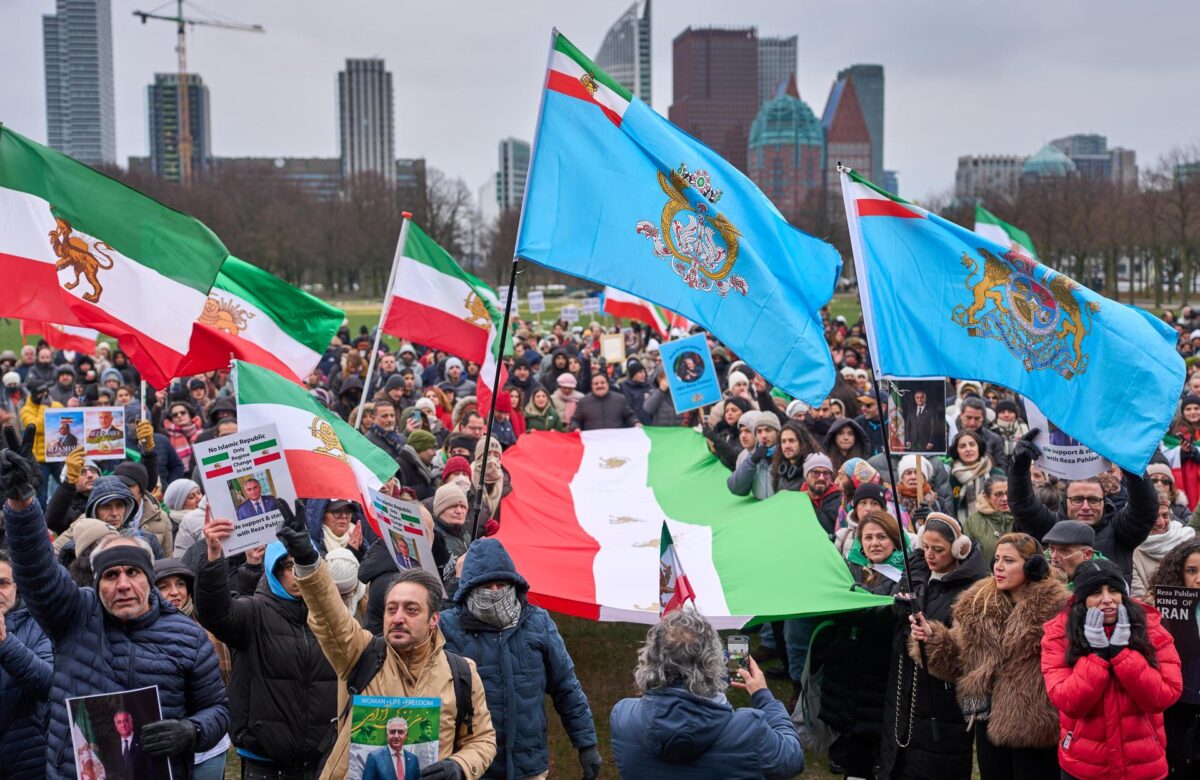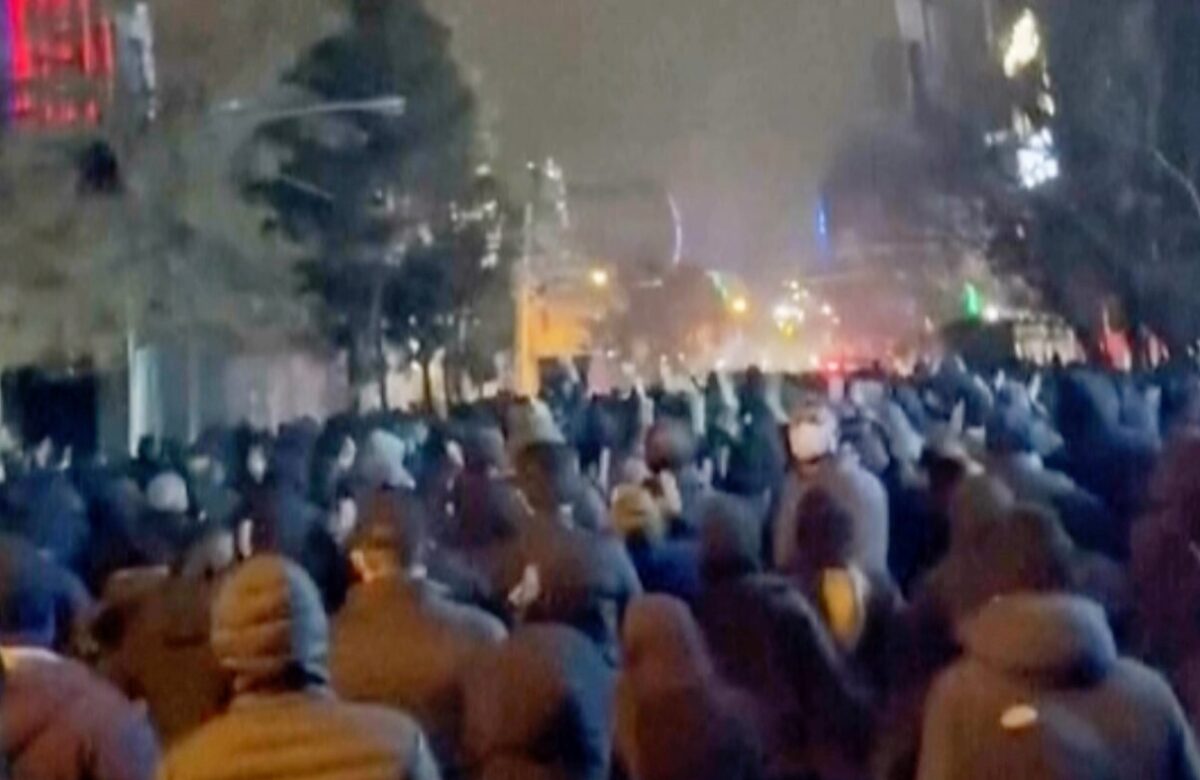US says strikes on Iran-linked militias just ‘the beginning’ of its response | Middle East and north Africa
- Politics
- February 4, 2024
- No Comment
- 159
US airstrikes on Iranian-backed militias in the Middle East were just the beginning of a sustained response, the White House national security adviser warned on Sunday, as he refused to rule out strikes on Iranian soil.
Jake Sullivan said the strikes on Friday night against 85 targets in Iraq and Syria, designed as retaliation for the killing of three US soldiers, “were the beginning, not the end of our response, and … there will be more steps, some seen, some perhaps unseen, all in an effort to send a very clear message that when American forces are attacked, when Americans are killed, we will respond and we will respond forcefully”.
Speaking on NBC the day after separate overnight US and UK airstrikes against Houthi targets in Yemen, Sullivan three times rejected a chance to rule out strikes on Iran itself, which would be a major escalation that the US has so far been determined to avoid.
Senior figures in the Iraqi government, many close to Iran, demanded an end to the presence of US troops in their country, claiming Washington was taking the region to “the edge of an abyss”. The US strikes are due to be debated in an emergency session of the UN security council on Monday in New York. US diplomats are expected to say the strikes are in self-defence, and that US troops in Iraq are present at the request of the Iraqi government.
The US secretary of state, Antony Blinken, was on his way to the region on Sunday, his fifth trip since Hamas’s attack on Israel on 7 October. He is to make yet another attempt to secure a hostage release deal and remove the blockages to aid reaching Gaza, as the war approaches its fifth month.
Iran, for its part, warned the US against any move against the Iranian-flagged ship Behshad, which is stationed in the Red Sea and suspected by the US of providing surveillance information to help direct Houthi onshore cruise-missile attacks on commercial shipping in the area.
Iran said the ship was “deployed in the Red Sea in official coordination with the International Maritime Organization to ensure the security of Iranian ships against pirates”. Any attack on the ship would be at the risk of those taking such steps, Tehran said.
The Iranian warning came after a third wave of US and UK strikes hit 36 Houthi targets in Yemen on Saturday night, prompting a vow from the Tehran-backed militant group to continue attacks on commercial shipping in the Red Sea in support of Palestinians in Gaza.
The assault was supported by six other countries, including Canada, the Netherlands and Bahrain. The US said the strikes targeted 13 locations across Yemen and hit underground weapons storage facilities, missile systems, launchers and other capabilities the Houthis have used to attack Red Sea shipping.
The UK prime minister, Rishi Sunak, said on Sunday night the strikes were “in self-defence” and that he would not “hesitate to protect British lives”.
Speaking on a visit to Northern Ireland, he said: “Since the last set of strikes, we have seen the Houthis continue to attack shipping in the Red Sea.
“That is obviously unacceptable. It is illegal. It puts innocent people’s lives at risk and it has economic consequences. It includes attacks, by the way, on British-linked vessels. And that is why we have acted again in self-defence, in a proportionate way, and together with our allies.
“I have been clear that I won’t hesitate to protect British lives, British interests, and our diplomatic efforts are focused on bringing de-escalation and stability back to the region.”
The US and UK previously launched joint strikes on 11 and 22 January.
The larger strategic conflict pits the US – which is trying to press Tehran into reining in its allied forces across the region – against Iran, which is determined to aid those forces to put pressure on the US to leave the region and for Hamas not to be destroyed in Gaza.
Neither Washington or Tehran, however, want to slip into direct conflict. Tehran has set a red line by telling the US not to mount any direct attack on Iranian soil, the course favoured by many US Republicans.
Explaining the reasoning for the attacks on the Houthis, the US defence secretary, Lloyd Austin, said: “This collective action sends a clear message to the Houthis that they will continue to bear further consequences if they do not end their illegal attacks on international shipping and naval vessels.”
His UK counterpart, Grant Shapps, said: “The Houthis’ attacks on commercial and military vessels in the Red Sea are illegal and unacceptable and it is our duty to protect innocent lives and preserve freedom of navigation.
“That is why the Royal Air Force engaged in a third wave of proportionate and targeted strikes against Houthi military targets in Yemen.
“This is not an escalation. We have already successfully targeted launchers and storage sites involved in Houthi attacks, and I am confident that our latest strikes have further degraded the Houthis’ capabilities.”
The Houthi military spokesperson Yahya Sarea said the strikes “will not pass without a response and consequences”. The Houthis said 48 attacks had been launched, including 13 in the capital, Sana’a.
Military and diplomatic experts are divided on whether the strikes will undermine the Houthis’ military and political base along the Red Sea coast and in the north of the country, including Sana’a. The group, which is armed and advised by Iran but is not a full-scale client agent, feels it has gained prestige in the Middle East by taking the lead in acting in solidarity with the people of Gaza.
Its strikes have successfully deterred commercial shipping from using one of the world’s busiest waterways, pushing up transport costs and insurance premiums.
The Yemen strikes, now in their third week, are running in parallel to Washington’s continuing retaliation for repeated attacks on US military bases in Iraq, Jordan and Syria. The first wave of attacks on Friday struck targets linked to Iran’s Islamic Revolutionary Guard Corps (IRGC) and the militias it backs, reportedly killing nearly 40 people.
The strikes in Iraq, telegraphed by the Pentagon for a week, do not appear to have killed any Iranian military advisers and were largely focused on munitions dumps of the Islamic Resistance in Iraq, the umbrella group for militias operating in the country.
Sullivan said he was not prepared at this stage to give details on the damage inflicted by the US.
Iraq’s national security adviser, Qasim al-Araji, said: “This aggressive strike will put security in Iraq and the region on the brink of abyss, and it also contradicts efforts to establish the required stability.”
In a sign of Iraqi sympathies, Araji met Abu Idris al-Sharafi, the special representative of the Houthi leader, Abdul-Malik al-Houthi last week, when the two sides “confirmed that the war in Gaza is the reason for the escalation in the region and its continuation is dragging the region into a war with dire consequences. The war must be stopped and the suffering of the Palestinian people must be lifted.”
Within hours of the US strikes, Islamic Resistance claimed to have targeted three US bases in Syria and Iraq, including the al-Tanf bases at the border triangle between Jordan, Iraq and Syria, and another base in Erbil, northern Iraq.
#strikes #Iranlinked #militias #beginning #response #Middle #East #north #Africa









